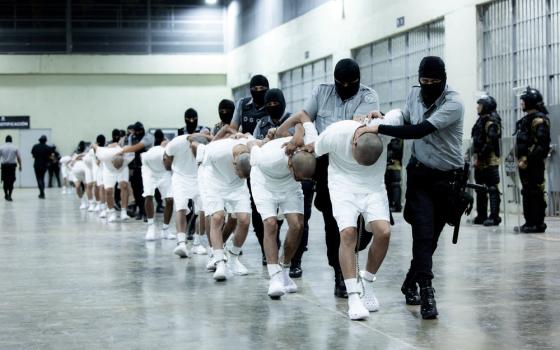
A sign that prohibits the entrance of ICE or Homeland Security is posted on a door at St. Paul and St. Andrew United Methodist Church in New York, Jan. 21, 2025. (AP/Seth Wenig, File)
A federal judge on Friday, April 11, sided with the Trump administration in allowing immigration agents to conduct enforcement operations at houses of worship despite a lawsuit filed by religious groups over the new policy.
U.S. District Judge Dabney Friedrich in Washington refused to grant a preliminary injunction to the plaintiffs, more than two dozen Christian and Jewish groups representing millions of Americans.
She found that only a handful of immigration enforcement actions have been conducted in or around churches or other houses of worship and that the evidence doesn't show "that places of worship are being singled out as special targets."
The groups argued the policy violated the right to practice their religion. Since President Donald Trump took office in January, attendance has declined significantly, with some areas showing double-digit percentage drops, they said.
The judge, though, found that the groups had not shown their drops were definitively linked to the church policy specifically, as opposed to broader increased actions by Immigration and Customs Enforcement or other agencies.
"That evidence suggests that congregants are staying home to avoid encountering ICE in their own neighborhoods, not because churches or synagogues are locations of elevated risk," wrote Friedrich, who was appointed by the Republican president during his first term.
Advertisement
That means that simply reversing the policy on houses of worship wouldn't necessarily mean immigrants would return to church, she found.
On Jan. 20, his first day back in office, Trump's administration rescinded a Department of Homeland Security policy limiting where migrant arrests could happen. Its new policy said field agents using "common sense" and "discretion" can conduct immigration enforcement operations at houses of worship without a supervisor's approval.
Plaintiffs' attorneys claimed the new Homeland Security directive departs from the government's 30-year-old policy against staging immigration enforcement operations in "protected areas" or "sensitive locations."
In February, a federal judge in Maryland ruled against the Trump administration in a similar case brought by a coalition of Quakers and other religious groups. U.S. District Judge Theodore Chang's order in that case was limited to those plaintiffs.
A judge in Colorado sided with the administration in another lawsuit over the reversal of a similar policy that had limited immigration arrests at schools.





